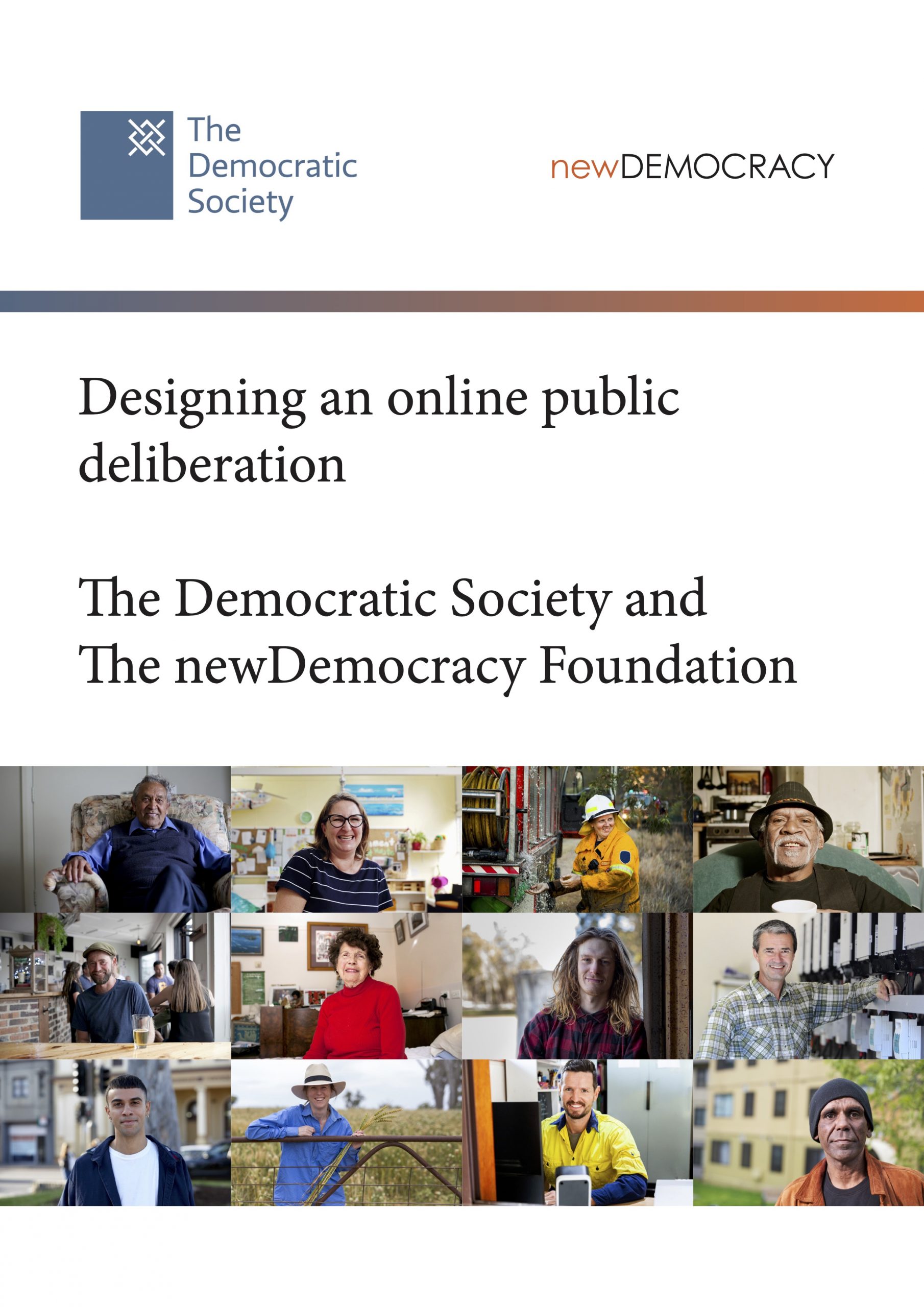This paper, created by the newDemocracy Foundation in Australia and The Democratic Society in Europe, sets out how some of these challenges can be addressed, not through a simplistic digitisation of offline methods, but by creating assemblages of tools and techniques that realise the maximum benefit of online tools while preserving the qualities that make offline deliberation a recognised gold standard.
The measures implemented for social distancing to slow the spread of Covid-19 Coronavirus are driving new thinking around public deliberation. We must resolve long standing challenges to taking deliberation ‘online’ while retaining the qualities that make such deliberation useful. Nowhere in the world has solved this problem, but there are components and exercises that have worked. We’re drawing on these individual points of success.
Shifting to an online or digital medium places barriers at almost every aspect of a typical public deliberation. It immediately reduces the pool of people available or capable of comfortably contributing. More critically, public deliberations rely heavily on the ability for everyday people to build personal relationships with one another (engaging at length with people with different views and different life experiences) while solving a shared problem. Online meetings mean the same quality of deliberation needs to be delivered in very different circumstances.
We believe, though, that authentic, valuable and high quality online deliberation is possible, and that online tools can strengthen some aspects of the deliberative process, even as they make other aspects more difficult.
Digital access can make people feel more able to contribute, but it also means they’re more prone to distraction. It can be harder to focus when working from home and covering complex learning tasks. Our online attention-spans are much shorter than our in-person ones. However, the “flat” nature of digital participation can encourage deeper participation, particularly by those who lack confidence, because multiple different contribution methods can be combined. We need to work within people’s capacity for communicating through a screen, but also make the most of it to broaden contributions.
We need to think about issues of connectivity, digital skills and troubleshooting. Hands on assistance with technology will be needed by someone at some point and our solutions need to pre-empt it.
It will also be important, when video participation is being used, to ensure that participants are able to create a space that is as distraction-free as possible, and do not feel embarrassed by their surroundings or overawed by the homes of others.
The combination of these elements makes it difficult to adapt processes we would normally use in-person to an online format. A simple “lift and shift” online will not work as well – if it even works at all. This requires us to start our thinking again, developing a project model with both deliberative principles and specific barriers and opportunities in mind.
This is one contribution to a development process that is happening across the world. We want to exchange knowledge not only with our peers in the democratic sector, but with those facing similar challenges to high quality participation in governments, schools, colleges and businesses. We will continue to update these ideas as they are tested and developed, and reflect the ideas and experiences of our peers and partners in the democratic innovation sector. If you would be interested in exploring some of these issues with us, or sharing your experiences, our contact details are at the end of this working paper.
For further information, or to discuss any of the issues raised, please contact us:
- newDemocracy Foundation, Australia:
Kyle Redman, kyle.redman@newdemocracy.com.au - The Democratic Society aisbl, Europe:
Marian Cramers, marian@demsoc.org. Twitter/FB/Insta: @demsoc

